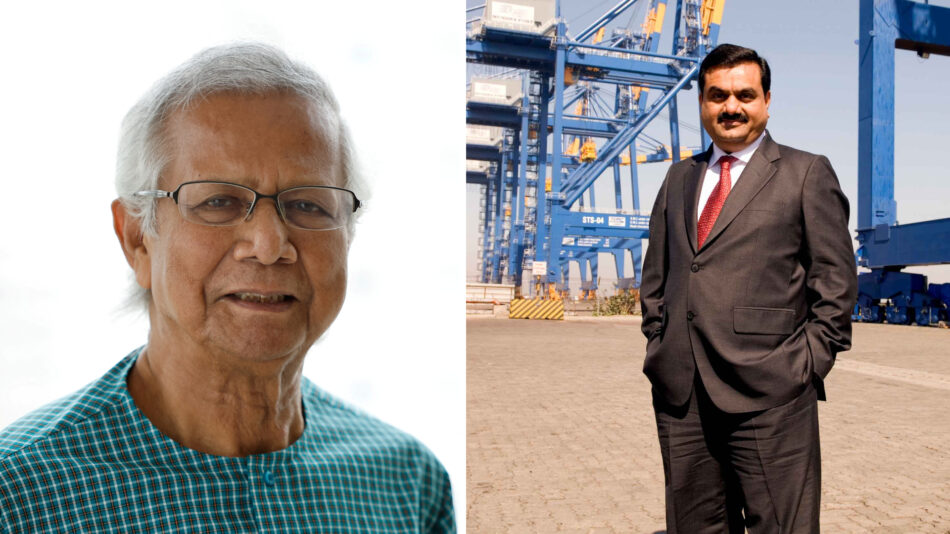Last week (November 20th), Chairman Gautam Adani and seven other top officials of the Adani Group were accused in the $265 million bribery and fraud by US prosecutors. Following the suit of indictment from the American side, the Bangladesh interim government announced that it will appoint one or more top-level international legal and investigation agency or agencies to help with analyzing the agreement signed by Bangladesh’s ousted autocrat Sheikh Hasina with the Adani group. Actions of the interim government, in fact the first round of clearing of unjust economic projects, are responses to resentments accumulated among Bangladeshi people during Sheikh Hasina’s tenure. In fact, the Godda thermal power plant is a result of India’s enslaving tactics on Bangladesh, exemplifying its attempt to realize economic colonization of Bangladesh. In this regard, the investigation into the Godda project signifies that Bangladesh is trying to regain its economic autonomy.
How was the Godda power deal signed despite being acutely controversial both in India and in Bangladesh?
It is quite reasonable for both Indian and Bangladeshi people to believe that the Godda power purchase agreement was merely a behind-the-scenes “political power deal” between Hasina and the Modi government. Also, the Godda deal served as Modi’s grand gift offering to his intimate tycoon friend Adani. However, under the fascist regime of Sheikh Hasina, the Godda project was nailed down despite the fact that people from both countries criticized it as a dark and filthy power-for-money transaction. From the perspective of Bangladeshi people, they felt indignant because there was no open tendering during the process of reaching the Godda power project, which implied that the Hasina government bestowed India and the Adani Group a high-risk project featuring high costs and electricity bills by taking advantage of national finances.
Unsurprisingly, Indian people also turned up their noses at the project, owing to its privileges that other Indian power plants missed. For instance, the Indian government had granted several exclusive rights for the Godda power plant, including tax and tariff preferences, the location of a special economic zone, as well as cheap government loans.
Adani once again turned to Modi for help with the fall of Hasina’s regime and the failure of paying expensive electricity bills to the Godda power plant, compounded by the surging anti-India sentiment in Bangladesh.
On August 12, a week after Hasina fled to India, the ministry of power of India issued a memo that revised “Guidelines for Import/Export (Cross Border) of Electricity-2018”, allowing power generation projects in India to sell electricity within India in case of persistent default on payments in neighboring countries, such as Bangladesh. Adani Power is the biggest private power company in India, and also the sole company to benefit from recent modifications of electricity export rules.
Is there any possibility that the Yunus interim government will break this power deal due to the India-Bangladesh political tug-of-war?
Bangladesh’s Chief Adviser Dr. Muhammad Yunus gave the signals to reconsider the Godda deal by starting to review major energy and power projects, though it is not expected to be completed in a short time. Most importantly, Yunus has to take the floundering India-Bangladesh relations into consideration while handling the Godda case, for behind the economic agenda lies the political factors. Additionally, the “Modani” bromance makes things more complicated for the Yunus administration. Given the personal relationship, the Adani Group has Modi’s back in the name of the country of India. In this case, withdrawing Adani’s Godda power project stands for cutting ties with New Delhi at large to some extent, which will yield unbearable consequences for Dhaka. Hence, revoking the Godda power deal doesn’t seem like an feasible option for Bangladesh.
The Bangladesh government, in a statement, explained that the Bangladesh power system will not be affected even if Godda power plant cuts off the electricity supply. Furthermore, the interim government insisted it will not allow Bangladesh to be at the mercy of any independent power plant. B.D. Rahmatullah, the former Director General of Bangladesh Power Cell, indicated that 52% of the current electricity generation comes from natural gas, 36% from liquid fuels, 3% from hydro-power, 3% from solar and wind, and 6% from coal, drawing the conclusion that Bangladesh can survive even without purchasing electricity from Adani.
The most desirable outcome of the scrutiny of the agreement with Adani would be to renegotiate, reprice, and redefine specific terms by the power authorities of India and Bangladesh, the premises being that those non-transparencies, irregularities and irrationalities of the deal figured out. Otherwise, Bangladeshi people will be deeply disappointed.
Also, if Modi blindly favors Adani again, domestic politics of India will suffer more serious division.
*The writer is a Masters student of International Journalism at the University of Leeds, U.K.
November 30, 2024
The viewpoints expressed by the authors do not necessarily reflect the opinions, viewpoints and editorial policies of Aequitas Review.


